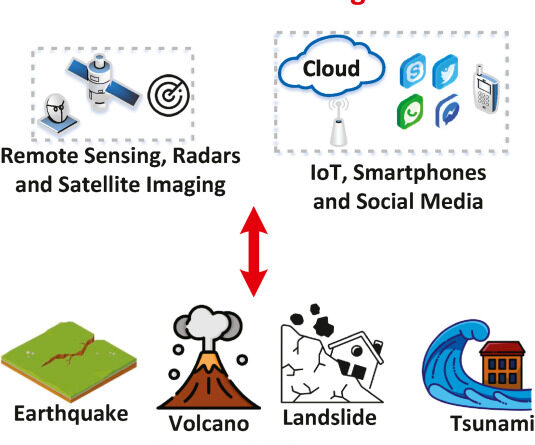AI Can Predict The Disaster In Advance-2024
AI Can Predict The Disaster In Advance
Worldwide, floods claim hundreds of lives each year, interrupt the lives of millions, and result in large financial losses. AI flood forecasting models have been developed by Google Research as part of our efforts to enhance AI in response to the climate issue and assist impacted communities. Our solution integrates two artificial intelligence (AI) models that analyse various publicly accessible data sources: the Hydrologic Model estimates the volume of water flowing in a river, while the Inundation Model anticipates the areas that will be impacted and the height of the water level.
In this manner, we are able to notify residents in affected areas up to seven days in advance of the crisis.
We hope that by alerting individuals and organisations, we can enable them to take action and reduce harm and casualties. To create and disseminate flood alerts, we collaborate closely with NGOs, governments, and the UN. Our system is scalable and currently covers dozens of nations, and after many years of intensive research and development, our goal is to cover all places affected by floods worldwide in the future.
Follow Our Digiknowledge.co.in Page for Latest update about Bikes, Cars, Sports, , Life style and many more.
Alerts from the forecasting system are available via a number of platforms, including the Flood Hub, Android notifications, Google Search, and Maps. Can floods be predicted several days ahead of their actual occurrence? Google claimed that the AI Can Predict The Disaster In Advance seven days ahead of time using its artificial intelligence (AI) algorithm.
According to Google, it has been effectively utilising artificial intelligence (AI) for some time to forecast riverbank floods. Google was sometimes able to forecast flooding in a region up to seven days ahead of schedule.
These results are verified and legitimate, published in the esteemed scientific magazine Nature—far from being just tech industry promises. An early warning system is a critical development, since floods are one of the most common natural disasters worldwide.
Because most river systems lack streamflow gauges, forecasting floods has historically been extremely difficult.
Using machine learning models trained on a variety of datasets including historical events, river level measurements, elevation data, and terrain readings, among other variables, Google surmounted this obstacle.
The company produced hundreds of thousands of localised maps and thousands of simulations at each place by utilising this vast amount of data. The models were able to correctly predict approaching floods thanks to this multimodal methodology.
Although Google has been successful in creating extremely accurate models that are customised for particular areas, the company also hopes to solve the global flood prediction problem.
While the organisation was able to make accurate forecasts as far ahead as seven days in a few cases, the typical forecast horizon is about five days. Google, however, is still upbeat, claiming to have increased the “reliability of currently-available global nowcasts from zero to five days.”
Moreover, in underrepresented regions like some parts of Africa and Asia, the technique has significantly improved predicting accuracy.
With Google offering precise flood predictions for 80 nations and 460 million people living in those countries, the impact of this technology is enormous.
Google Maps, Android alerts, and Google Search all make these forecasts easily available. The company’s dedicated Flood Hub online application was launched in 2022 and offers users further access to this data.
Going forward, Google is dedicated to delving deeper into the possibilities of machine learning to improve flood prediction models. In order to maximise its AI-driven strategy, the corporation plans to work with academic experts to create a comprehensive “global end-to-end flood forecasting platform.”
In addition to representing a major technological development, Google’s innovative efforts to use AI for flood prediction have the potential to lessen the effects of one of the most destructive natural catastrophes on record.
The potential for improved global preparedness and resilience against floods is becoming more and more apparent as the company pursues innovation in this area.
Which AI techniques predicts climate related problems and disasters?
In order to help communities and authorities better plan how to adapt to and minimise the effects of climate change, the IKI Project employs artificial intelligence (AI) to help predict weather patterns. Increasing access to renewable energy, putting in place efficient waste management systems, and promoting reforestation are some examples of this.
Can AI help prevent natural disasters?
Disaster mitigation, preparedness, response, and recovery are four areas in which artificial intelligence can be applied. Artificial Intelligence can be used to forecast disasters and lessen them. Allocating resources wisely in advance could also aid in preparation.
How AI is helping predict floods?
The Google model makes use of a variety of openly accessible data sources, including geography, soil type, satellite photography, and weather forecasts. Next, it use AI to forecast which locations would be impacted by flooding and the depth of the water. After testing the model, 5,680 watersheds provided feedback that helped to enhance it.




